
Unveiling the Ancient Elegance of the Terrace Houses of Ephesus
Explore the exquisite Terrace Houses of Ephesus, where ancient grandeur meets rich history in stunning archaeological settings.
The Terrace Houses of Ephesus are a remarkable glimpse into ancient Roman life, showcasing stunning frescoes, intricate mosaics, and advanced architectural designs. A must-visit for any history enthusiast!
A brief summary to Terrace Houses of Ephesus
- Efes Harabileri, Selçuk, Atatürk, İzmir, 35920, TR
Local tips
- Visit early in the morning to avoid crowds and enjoy a more peaceful exploration of the site.
- Wear comfortable shoes, as the terrain can be uneven and requires a bit of walking.
- Don’t forget to bring a camera to capture the beautiful mosaics and frescoes.
- Consider hiring a local guide to gain deeper insights into the history and significance of the site.
Getting There
-
Walking
If you are starting from the Ephesus Archaeological Site entrance, begin by heading straight into the site. Walk through the ancient ruins, following the path that leads you toward the Celsus Library. After visiting the Library, continue along the main thoroughfare, the Marble Street, until you reach the Temple of Artemis. From there, follow the signs that indicate the way to the Terrace Houses, which are located just a short distance north of the main site. The entrance to the Terrace Houses is clearly marked, and you should see it on your right as you approach. The walk should take around 15-20 minutes.
-
Public Transport
If you are in Selçuk, take a local dolmuş (shared minibus) heading towards the Ephesus ruins. Tell the driver you want to go to the Terrace Houses, and they will drop you off at the nearest stop. From the dolmuş stop, you will need to walk a short distance to the entrance of the Terrace Houses, which is clearly signposted. The total travel time, including waiting for the dolmuş, should be around 20-30 minutes.
-
Guided Tour
Consider joining a guided tour that focuses on Ephesus. These tours often include a visit to the Terrace Houses, and the guide will provide you with transportation from your hotel or a central meeting point in Selçuk. This is a great way to learn more about the history and significance of the site while ensuring you reach the Terrace Houses without any hassle.
Discover more about Terrace Houses of Ephesus
Iconic landmarks you can’t miss
Terrace Houses of Ephesus
0.0 km
Explore the exquisite Terrace Houses of Ephesus, where ancient grandeur meets rich history in stunning archaeological settings.
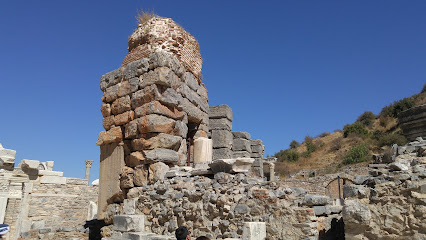
House of Pleasure
0.1 km
Explore the House of Pleasure in Selçuk, a historical landmark showcasing Turkey's architectural beauty and rich cultural heritage.
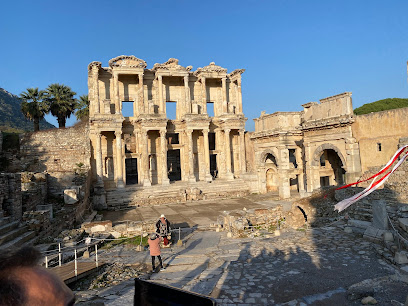
The Nymphaeum Traiani
0.1 km
Explore the Nymphaeum Traiani, an ancient Roman fountain in Ephesus, showcasing stunning architecture and rich history amidst archaeological wonders.
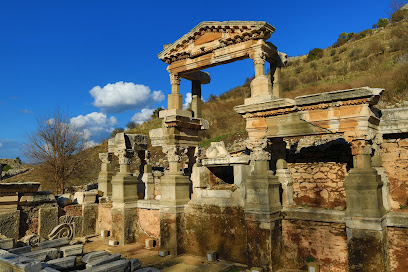
Trajan Fountain
0.1 km
Discover the grandeur of the Trajan Fountain in Ephesus, a historical landmark showcasing the brilliance of Roman architecture and engineering.
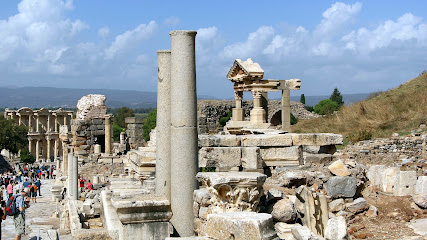
Ancient Direction Signal
0.2 km
Explore the Ancient Direction Signal in Selçuk, İzmir, a captivating historical landmark rich in culture and archaeological significance.
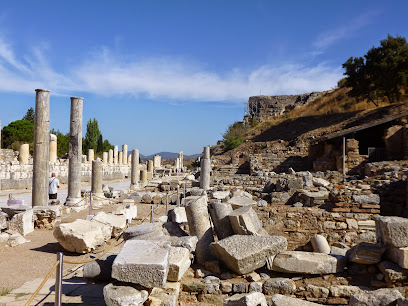
Fountain of Pollio, Ephesus
0.2 km
Explore the stunning Fountain of Pollio in Ephesus, a historical landmark showcasing ancient Roman architecture and rich cultural heritage.
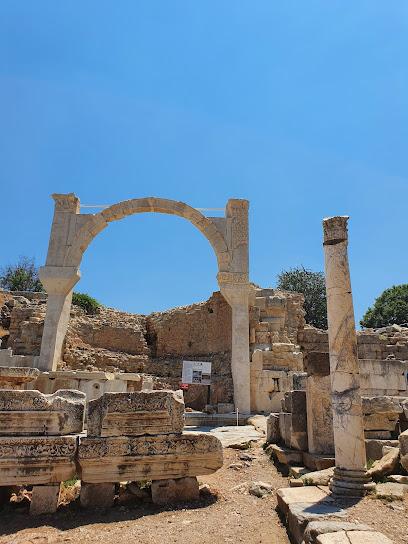
Пританей
0.3 km
Explore the Prytaneion in Selçuk, an ancient Roman landmark that immerses you in history, architecture, and serene beauty.
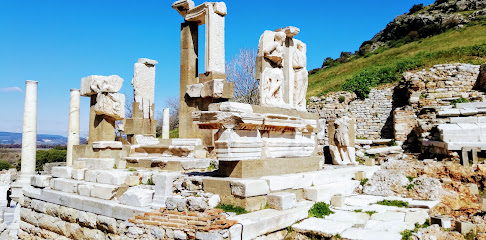
Ayasoluk Castle
0.7 km
Explore Ayasoluk Castle, a historic fortress in Selçuk, İzmir, offering breathtaking views and rich cultural heritage in the heart of Turkey.
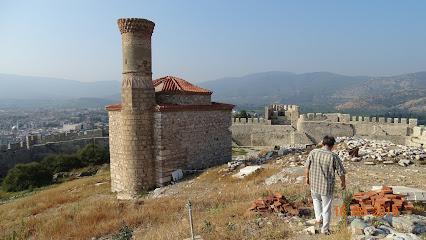
Alter Hafen Ephesus
0.7 km
Explore Alter Hafen Ephesus, a historical gem in Selçuk, Izmir, where ancient history and stunning Aegean views create an unforgettable travel experience.
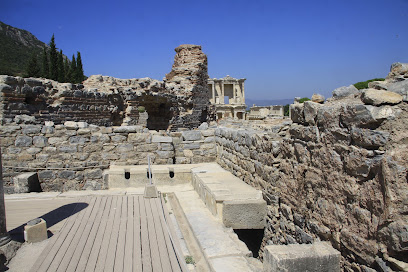
site éphèse
0.7 km
Explore the Ancient City of Éphèse, a UNESCO World Heritage site filled with stunning ruins and rich history, showcasing the glory of the Roman Empire.
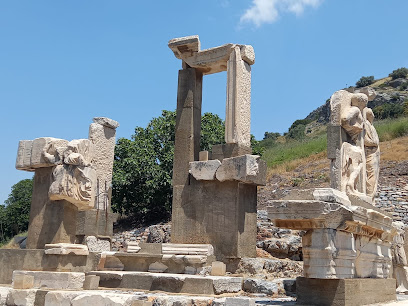
Virgin Mary Statue
0.9 km
Explore the serene beauty of the Virgin Mary Statue in Selçuk, a spiritual and cultural landmark offering stunning views and rich historical significance.
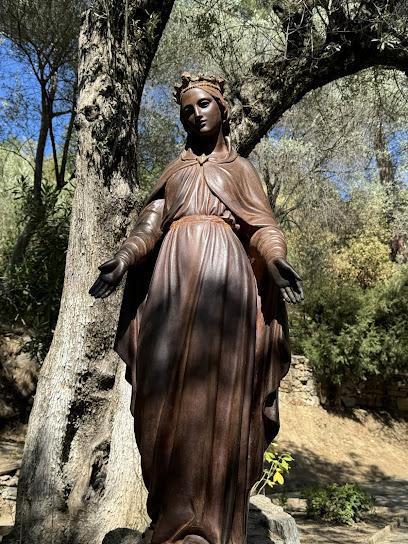
Vediusgymnasium
1.1 km
Explore Vediusgymnasium, a stunning historical landmark in Selçuk, showcasing the grandeur of ancient Roman architecture and culture.
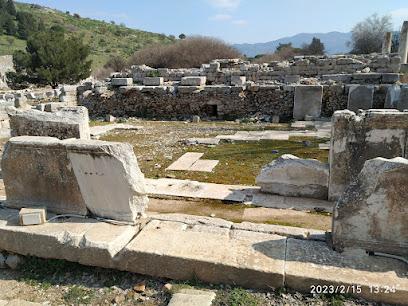
ancient city wall
1.1 km
Discover the Ancient City Wall of Selçuk, a historical landmark rich in heritage and stunning views, perfect for history enthusiasts and photographers alike.
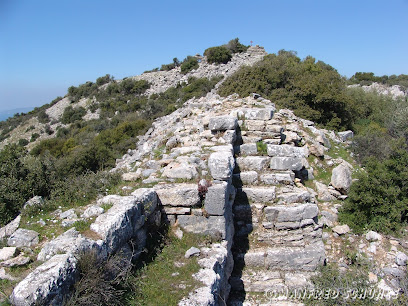
Grotto Of The Seven Sleepers
1.3 km
Explore the Grotto of the Seven Sleepers, a historical landmark near Ephesus that blends mythology with captivating natural beauty, offering a serene escape.
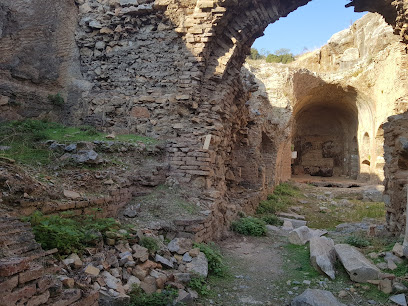
Ephesus Hostel
2.6 km
Discover the rich history of Ephesus while enjoying a budget-friendly stay at Ephesus Hostel in Selçuk, Turkey, your perfect travel base.

Unmissable attractions to see
Library of Celsus
0.1 km
Visit the Library of Celsus in Ephesus, a stunning ancient marvel showcasing Roman architecture and rich history, a must-see for every traveler.

Hercules Gate
0.2 km
Explore the historical marvel of Hercules Gate in Ephesus, a remarkable landmark showcasing ancient Roman architecture and rich cultural heritage.
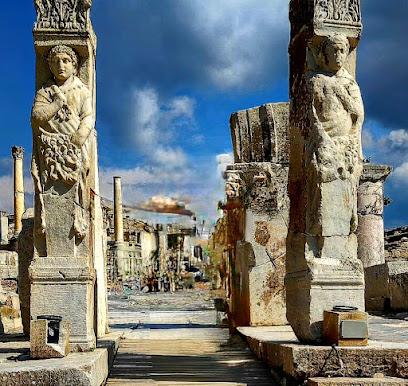
Ancient Greek Agora
0.2 km
Explore the Ancient Greek Agora in Selçuk, a remarkable historical landmark that offers a glimpse into the vibrant life of ancient civilizations.
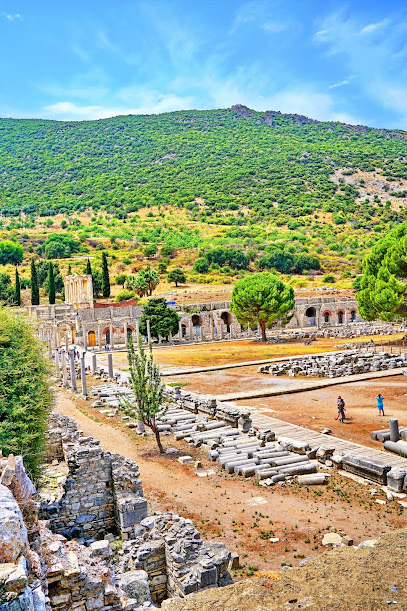
Memmius Monument
0.2 km
Explore the Memmius Monument in Selçuk, a stunning historical landmark showcasing ancient Roman culture and architectural beauty.
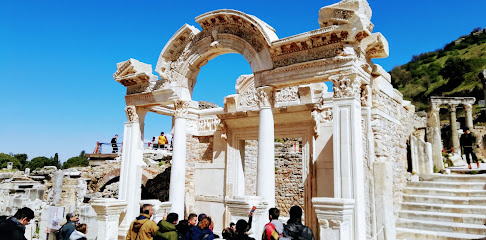
Temple of Domitian
0.2 km
Explore the Temple of Domitian in Selçuk, a stunning historical landmark that reveals the grandeur of ancient Roman architecture and rich cultural heritage.
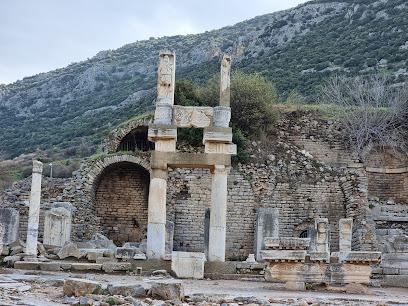
Ephesus Ancient City
0.3 km
Explore the majestic ruins of Ephesus Ancient City, a UNESCO World Heritage site, and experience the remnants of Roman civilization at its finest.
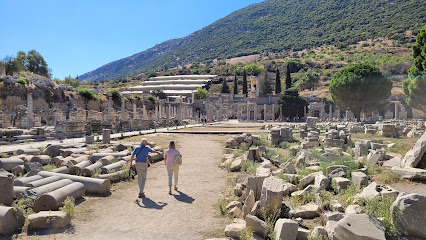
Ephesus Ancient Greek Theatre
0.3 km
Explore the magnificent Ephesus Ancient Greek Theatre, a historical landmark showcasing the splendor of ancient Greek architecture and culture in Selçuk, İzmir.
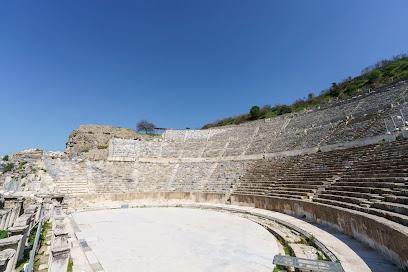
Odeon
0.4 km
Explore the majestic Odeon of Ephesus, an ancient theater that embodies the rich history and culture of this iconic archaeological site.
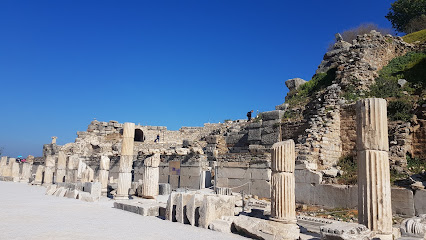
The State Agora
0.4 km
Discover the ancient wonders of The State Agora in Selçuk, a historical landmark that showcases the rich heritage of Roman civilization.
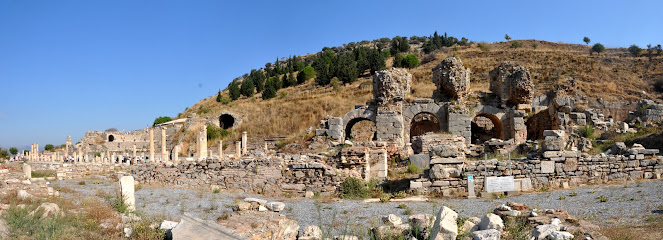
Ephesus Archaeological Site
0.5 km
Explore Ephesus Archaeological Site, an ancient marvel in Turkey, showcasing Roman architecture and rich history amidst stunning ruins.
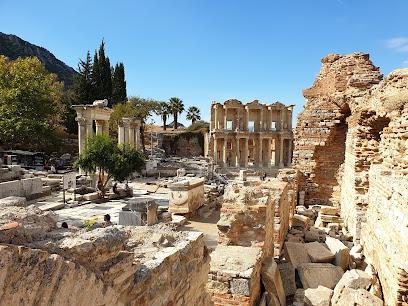
Ancient Christian Church of Virgin Mary
0.8 km
Discover the Ancient Christian Church of Virgin Mary in Selçuk, a historical church showcasing early Christian architecture and serene spiritual ambiance.
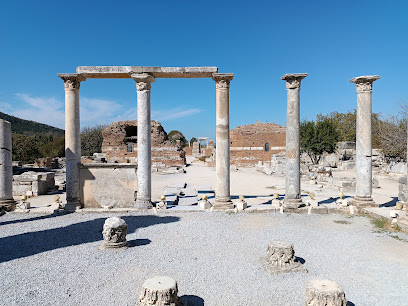
Cave of the Seven Sleepers
1.2 km
Explore the Cave of the Seven Sleepers in Selçuk, a legendary historical landmark steeped in myth and surrounded by breathtaking natural beauty.
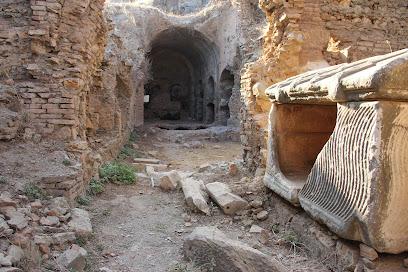
The Temple of Artemis
2.3 km
Explore the magnificent ruins of the Temple of Artemis in Selçuk, a historical landmark and a testament to ancient architectural brilliance.
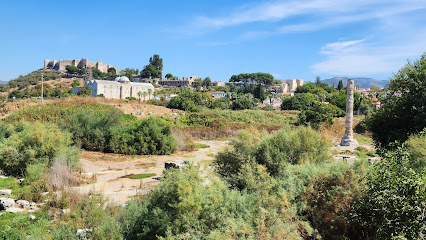
Arvalya Private Campground
2.4 km
Discover the serene beauty of Arvalya Private Campground in Selçuk, İzmir, a perfect escape for nature lovers and adventure seekers.
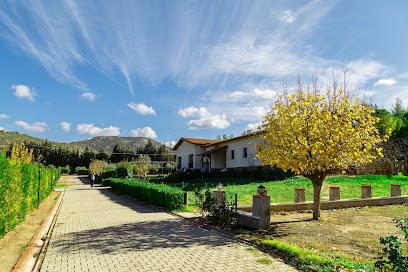
Saadet Hatun Hamamı Traditional Turkish Bath
2.5 km
Experience the rejuvenating essence of a traditional Turkish bath at Saadet Hatun Hamamı in Selçuk, where relaxation meets history.
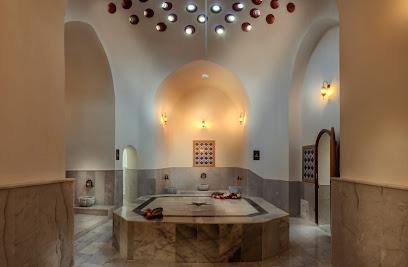
Essential places to dine
Askerin Yeri Piknik Restaurant
1.3 km
Discover authentic Turkish flavors at Askerin Yeri Piknik Restaurant in Selçuk - where nature meets delightful dining.
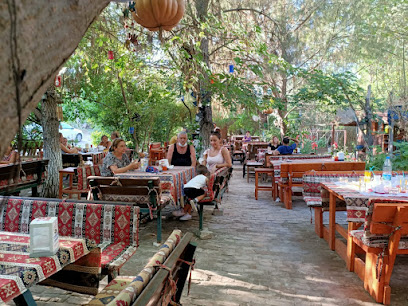
Yavuz's Restaurant
1.4 km
Discover authentic Turkish cuisine at Yavuz's Restaurant in Selçuk - where every dish tells a story.
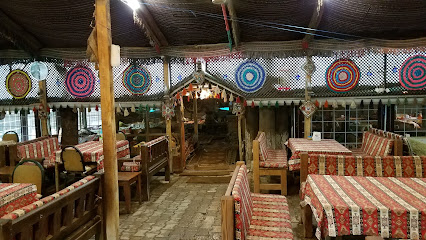
ERDEM ÇİFTLİĞİ-EPHESUS ARENA
1.9 km
Experience traditional Turkish breakfasts at Erdem Çiftliği near Ephesus Arena, where local flavors meet serene ambiance.

Cerithan Restaurant
1.9 km
Experience authentic Turkish cuisine at Cerithan Restaurant in Selçuk - where local flavors and warm hospitality come together.
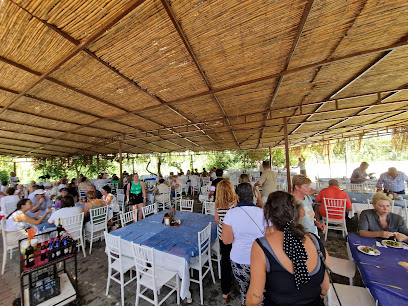
SULTAN RESTAURANT
2.0 km
Experience authentic Turkish flavors at Sultan Restaurant in Selçuk, where every meal is a celebration of local culture and hospitality.
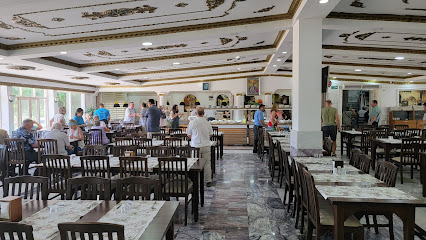
EFES VILLA KOREAN RESTAURANT
2.4 km
Discover authentic Korean cuisine at EFES VILLA KOREAN RESTAURANT in Selçuk - a culinary delight near ancient Ephesus.
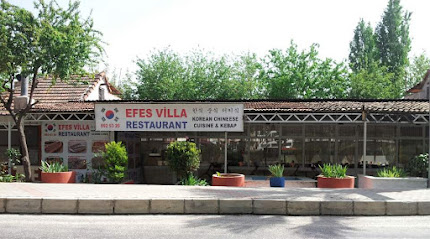
Villa Restaurant
2.5 km
Experience authentic Turkish cuisine at Villa Restaurant in Selçuk, where every dish tells a story of tradition and flavor.

Agora Restaurant
2.6 km
Savor the essence of Turkey at Agora Restaurant - where every meal tells a story through authentic flavors.
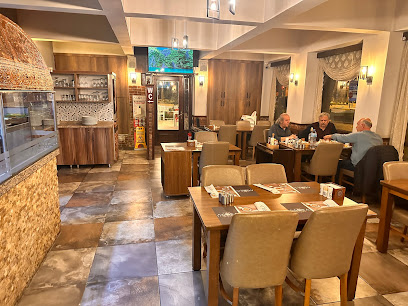
Skopje Otantic Restorant
2.6 km
Discover delicious traditional Turkish cuisine at Skopje Otantic Restaurant in Selçuk - a perfect blend of flavor and hospitality.
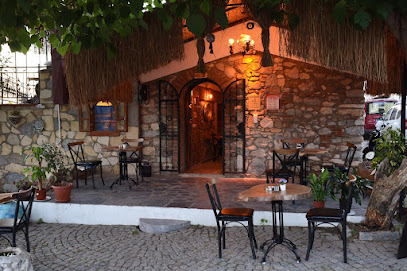
Mekan Efes Restaurant
2.6 km
Experience authentic Turkish cuisine at Mekan Efes Restaurant in Selçuk - where tradition meets flavor.
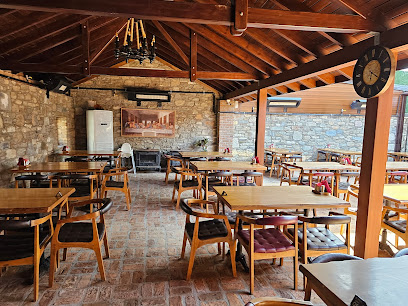
Amazon Bistro Cafe Bar
2.6 km
Experience delicious food and warm hospitality at Amazon Bistro Cafe Bar in Selçuk – your perfect retreat after exploring local attractions.
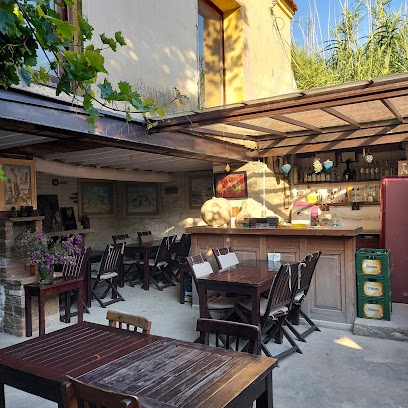
Kybele Gastro - Restaurant
2.6 km
Experience authentic Turkish cuisine at Kybele Gastro in Selçuk, where tradition meets modern culinary art amidst stunning historical surroundings.
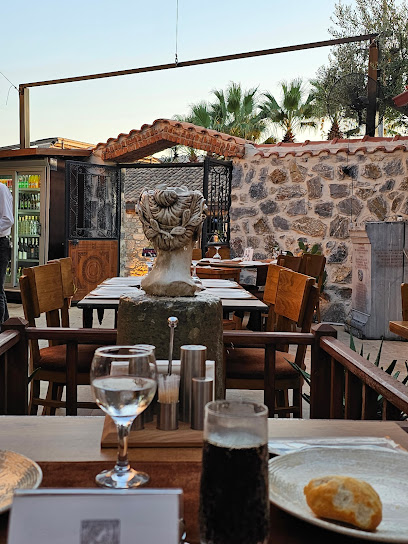
Petek Çöp Şiş
2.6 km
Experience authentic Turkish cuisine at Petek Çöp Şiş in Selçuk; savor grilled meats and local flavors in a welcoming atmosphere.

Ali Baba & Mehmet Kebab House
2.6 km
Discover authentic Turkish flavors at Ali Baba & Mehmet Kebab House in Selçuk - where every meal is a delightful culinary journey.
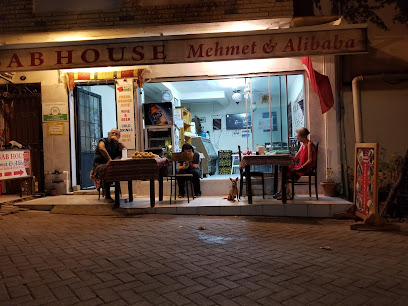
Ayasoluk Restaurant
2.7 km
Discover the flavors of Turkey at Ayasoluk Restaurant in Selçuk, where tradition meets modern dining in a stunning setting.
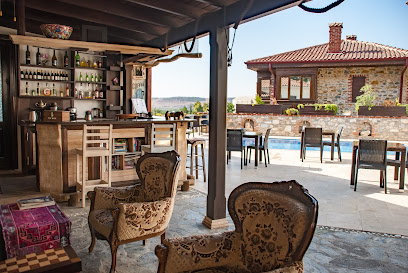
Markets, malls and hidden boutiques
genuine fake watches
0.5 km
Discover the charm of affordable elegance at Genuine Fake Watches in Selçuk - where style meets budget-friendly shopping!
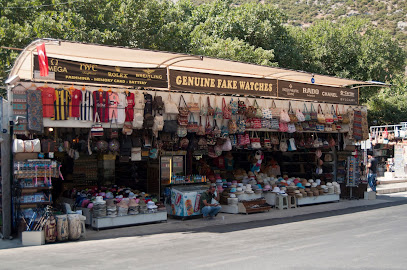
MENGI SOUVENIR
0.6 km
Discover unique Turkish souvenirs at MENGI Souvenir in Selçuk, İzmir, where local crafts bring culture to life.
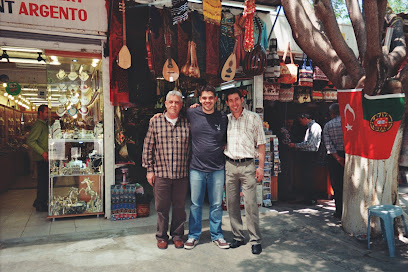
Osman keklik shop
0.6 km
Discover the charm of Turkish craftsmanship at Osman Keklik Shop, your go-to gift shop in Selçuk for unique souvenirs and local delights.
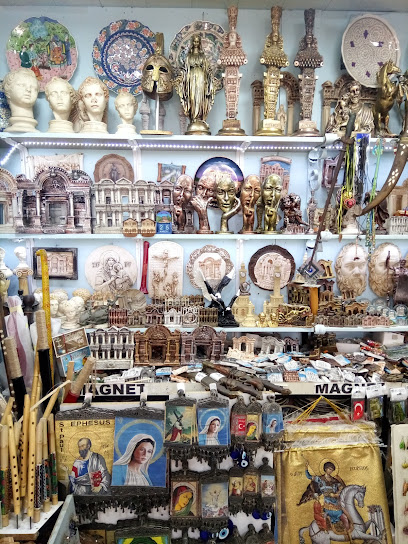
Ege Lokum
2.1 km
Discover Ege Lokum, a charming candy store in Selçuk, İzmir, offering a delightful selection of traditional Turkish sweets and lokum.

Kırcılar Leather Art
2.3 km
Discover exquisite handcrafted leather goods at Kırcılar Leather Art in Selçuk, where traditional Turkish craftsmanship meets modern elegance.
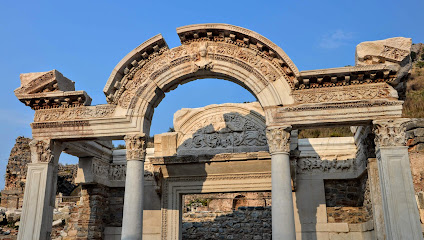
Ephesus tribal looms
2.5 km
Explore the rich heritage of Turkish carpet weaving at Ephesus Tribal Looms, where tradition meets artistry in every handcrafted piece.

EPHESUS VİNTAGE (Souvenir Shop)
2.5 km
Explore Ephesus Vintage for authentic Turkish handicrafts and souvenirs, capturing the essence of Turkey's rich cultural heritage.
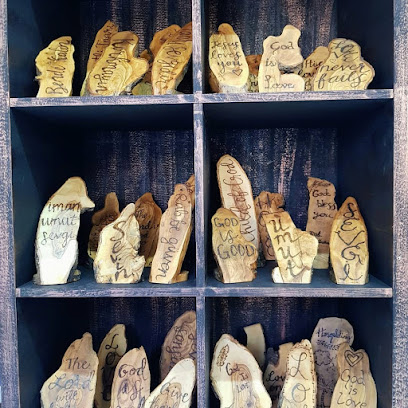
Ali Baba’s Handmade Rugs (Carpets & Kilims)
2.6 km
Explore the vibrant world of Ali Baba's Handmade Rugs in Selçuk, where authentic Turkish craftsmanship meets rich cultural heritage through exquisite carpets and kilims.
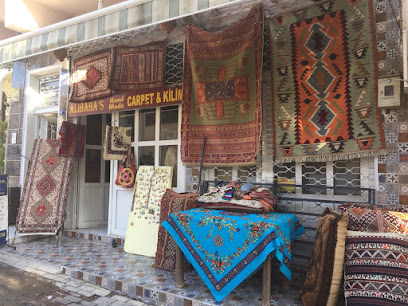
BLACKSHEEPCARPETS
2.7 km
Explore the finest handcrafted carpets, chinaware, and jewelry at Blacksheep Carpets in Selçuk, a perfect spot for unique Turkish souvenirs.

Authentic Art Shop
2.8 km
Explore the Authentic Art Shop in Selçuk for unique, handcrafted souvenirs that capture the essence of Turkey's rich cultural heritage.
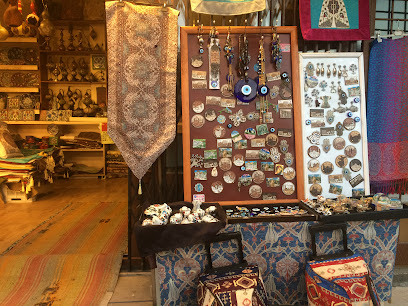
Popüler Leather
2.9 km
Explore exquisite handcrafted leather goods in Selçuk at Popüler Leather, where tradition meets style for discerning tourists.

La Tulip Art Gallery
2.9 km
Explore the vibrant world of artistic handicrafts at La Tulip Art Gallery in Selçuk, where local artistry meets cultural heritage.
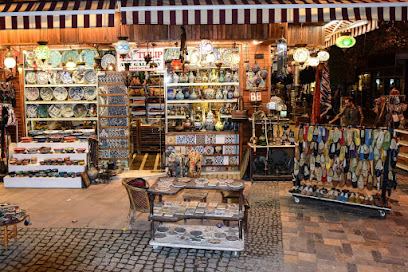
The Premium Company
2.9 km
Discover exquisite leather craftsmanship at The Premium Company in Selçuk, where tradition meets modern elegance in every handcrafted piece.
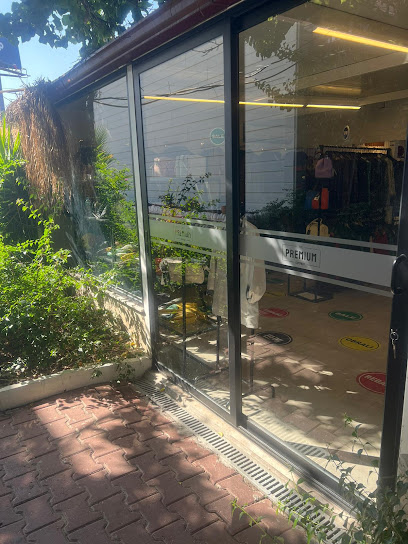
SULTAN JEWELLERY&FINE HANDMADE CERAMIC ART
2.9 km
Explore exquisite handmade jewellery and ceramics at Sultan Jewellery & Fine Handmade Ceramic Art, a unique souvenir store in Selçuk, İzmir.
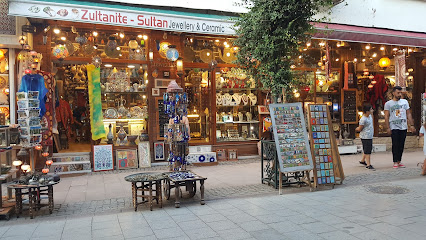
Sultan Art Gallery /Souvenir,Jewelry Silver,Gift’s Shop
2.9 km
Explore the Sultan Art Gallery in Selçuk for unique souvenirs and handcrafted jewelry that embody the beauty and culture of Turkey.
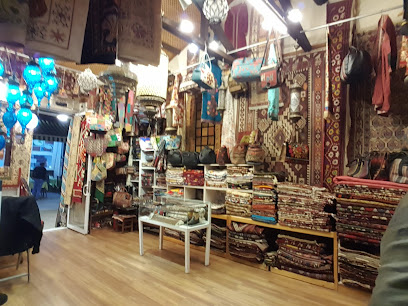
Essential bars & hidden hideouts
Nazdrave Cocktail Bar
2.5 km
Experience the vibrant atmosphere and exquisite cocktails at Nazdrave Cocktail Bar in Selçuk, Turkey, a must-visit for all travelers!
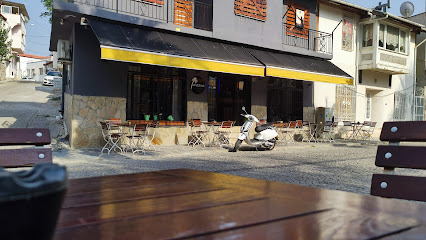
NICCI Joy
10.0 km
Discover the lively NICCI Joy in Kuşadası, where the atmosphere is vibrant, the drinks are refreshing, and unforgettable memories await.

Goreal Pub
10.0 km
Experience the vibrant nightlife at Goreal Pub, a cozy bar in Kuşadası offering a delightful selection of drinks with stunning coastal views.

Kaptan Bar
10.3 km
Experience the vibrant atmosphere of Kaptan Bar in Kuşadası, where stunning sea views and delightful cocktails create the perfect coastal escape.

Ozzy Pub
10.4 km
Discover Ozzy Pub in Kuşadası: A cozy bistro and pub offering delicious Turkish cuisine and a vibrant atmosphere for an unforgettable dining experience.

the Pub
10.7 km
Experience the vibrant nightlife of Kuşadası at The Pub, where great drinks and lively atmosphere meet local culture.

Sokak Bistro Cafe
10.7 km
Experience the vibrant flavors of Kuşadası at Sokak Bistro Cafe, your go-to spot for breakfast and casual dining in a lively atmosphere.

Pub Time
10.8 km
Discover the lively atmosphere of Pub Time in Kuşadası, a perfect blend of local charm and vibrant nightlife, ideal for unwinding after a day of exploration.

Deep & Dark Sports Bar
10.8 km
Experience the vibrant nightlife of Kuşadası at Deep & Dark Sports Bar, where great drinks and live entertainment await every visitor.

Hangover Bar Kuşadası
11.0 km
Discover the lively spirit of Kuşadası at Hangover Bar, where live music and vibrant nightlife create unforgettable memories.
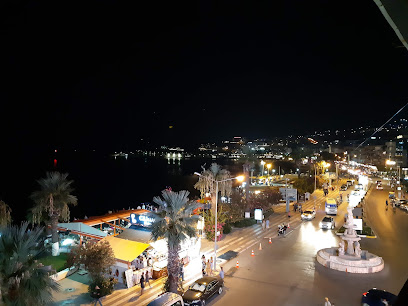
Santana Bar
11.0 km
Discover the vibrant flavors of Turkish cuisine at Santana Bar, a top grill destination in Kuşadası perfect for food lovers.
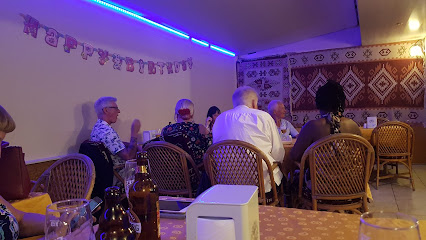
PUB 24
11.2 km
Discover the lively PUB 24 in Kuşadası, where delicious drinks and a vibrant atmosphere await every traveler seeking an unforgettable night out.

Brewery Pub
11.2 km
Discover Brewery Pub in Kuşadası - A Local Gem for Craft Beer Lovers with a Cozy Atmosphere and Delicious Snacks.

CHİLL BAR
11.2 km
Discover Chill Bar in Kuşadası for a relaxing escape with refreshing drinks and a vibrant atmosphere, perfect after a day of exploration.
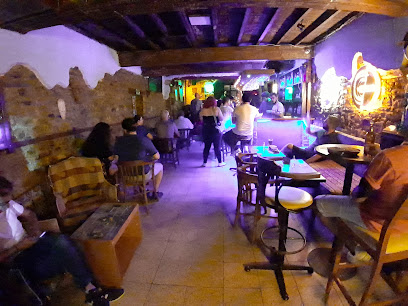
Copper's Bar
11.2 km
Experience the vibrant nightlife at Copper's Bar, the ultimate destination for drinks, dancing, and unforgettable memories in Kuşadası.

Nightclubs & after hour spots
Tren Kuşadası
9.8 km
Discover the vibrant nightlife at Tren Kuşadası, a premier night club offering an electrifying atmosphere and unforgettable parties until dawn.

Harem Club
10.0 km
Discover the electrifying nightlife of Kuşadası at Harem Club, where music, dancing, and vibrant energy create an unforgettable experience.

Öküz Kuşadası
10.1 km
Discover the exhilarating nightlife of Öküz Kuşadası, where music, dancing, and unforgettable moments await you in the heart of Aegean beauty.
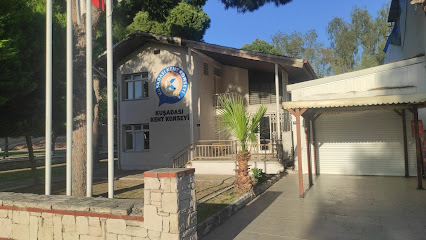
Harem
11.3 km
Experience the vibrant nightlife of Kuşadası at Harem Night Club, where electrifying music and lively ambiance create unforgettable memories.
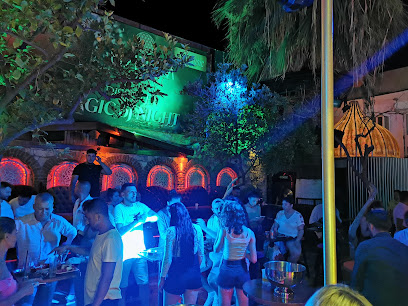
Club Men
11.3 km
Dive into the electrifying atmosphere of Club Men, the ultimate nightlife destination in Kuşadası, where unforgettable memories await.

LOVE SENSATİON GAY Club Kuşadası
11.3 km
Dive into the vibrant nightlife at LOVE SENSATION GAY Club Kuşadası, a premier disco club for the LGBTQ+ community and their allies.

Paparazi Kuşadası
11.3 km
Discover the vibrant nightlife of Kuşadası at Paparazi, where music and dance create unforgettable experiences under the stars.

Club Caravanserail
11.4 km
Discover the vibrant nightlife of Kuşadası at Club Caravanserail, where electrifying music and dance await in a lively atmosphere.
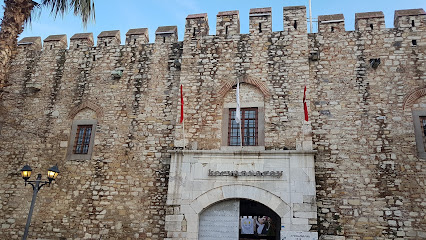
Alamut Kuşadası
11.5 km
Alamut Kuşadası - Dive into the vibrant nightlife of Kuşadası at this premier night club, where unforgettable memories await.

Ephesus & Celsus club
11.5 km
Experience vibrant nightlife at Ephesus & Celsus Club in Kuşadası, where great drinks and a lively atmosphere await.
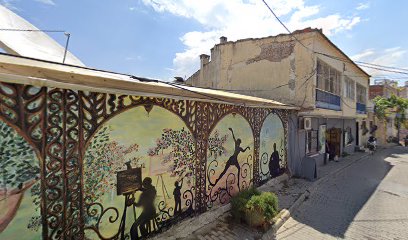
Batının Aile Sofrası
12.1 km
Experience the vibrant nightlife of Kuşadası at Batının Aile Sofrası, where Turkish hospitality meets modern entertainment in a lively night club setting.
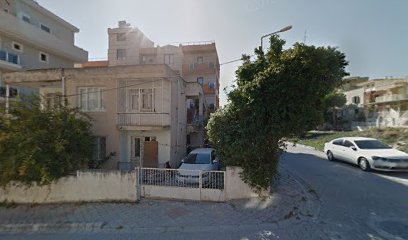
Med Kelly's
13.6 km
Experience the lively atmosphere of Med Kelly's in Kadınlar Denizi, where refreshing drinks and vibrant music meet stunning Aegean views.
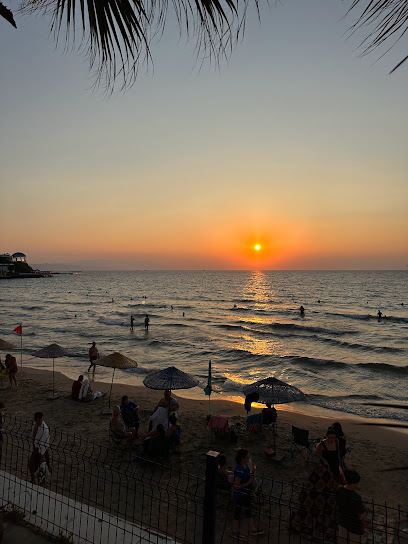
Lite Nite Beach Club
13.9 km
Discover the energetic nightlife at Lite Nite Beach Club, where stunning views and electrifying music create unforgettable experiences along the Aegean coast.
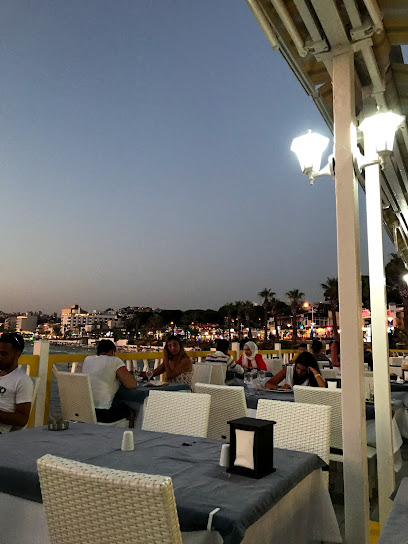
Talin Beach Club
17.6 km
Discover the lively ambiance of Talin Beach Club in Kuşadası, where unforgettable nights and beachside views await.
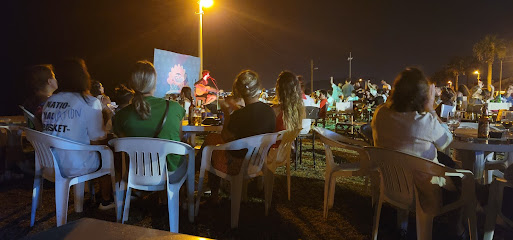
Pine Clup
18.8 km
Experience the vibrant nightlife of Kuşadası at Pine Club, where music, dancing, and unforgettable moments await you.




